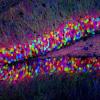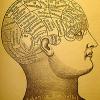how to avoid tolerance to theanine?
With regards to THEANINE and TOLERANCE there appears to inconsistency in this regards, in that some anecdotal user reports mention TOLERANCE developing to some of its effects, however others report no occurrence of TOLERANCE.
Therefore, my recommendation would be to firstly try THEANINE to ascertain whether
YOU personally experience TOLERANCE after prolonged repeated usage; if you do, then the solution would be to CYCLE it ON and OFF, with the duration of the OFF period being sufficient such that the TOLERANCE resets to baseline.
and does theanine have some long-term effects beside short-term relaxation and other effects?
There exists very little research studying what are the potential positive
long-term effects of THEANINE administration; however, I was able to locate this study, which may be of interest as it seems to support THEANINE's efficacy in TREATING ANXIETY SAFELY & EFFECTIVELY:
J Clin Psychiatry. 2011 Jan;72(1):34-42. Epub 2010 Nov 30.
L-theanine relieves positive, activation, and
anxiety symptoms in patients with schizophrenia and schizoaffective disorder:
an 8-week, randomized, double-blind, placebo-controlled, 2-center study.Ritsner MS, Miodownik C, Ratner Y, Shleifer T, Mar M, Pintov L, Lerner V.
SourceDepartment of Psychiatry, The Rappaport Faculty of Medicine, Technion, Israel Institute of Technology, Haifa, Israel.
AbstractOBJECTIVE: L-theanine is a unique amino acid present almost exclusively in the tea plant. It possesses neuroprotective, mood-enhancing, and relaxation properties. This is a first study designed to evaluate the efficacy and tolerability of L-theanine augmentation of antipsychotic treatment of patients with chronic schizophrenia and schizoaffective disorder.
METHOD: 60 patients with DSM-IV schizophrenia or schizoaffective disorder participated in an 8-week, double-blind, randomized, placebo-controlled study. 400 mg/d of L-theanine was added to ongoing antipsychotic treatment from February 2006 until October 2008. The outcome measures were the Positive and Negative Syndrome Scale (PANSS), the Hamilton Anxiety Rating Scale (HARS), the Cambridge Neuropsychological Test Automated Battery (CANTAB) for neurocognitive functioning, and additional measures of general functioning, side effects, and quality of life.
RESULTS: 40 patients completed the study protocol. Compared with placebo, L-theanine augmentation was associated with reduction of anxiety (P = .015; measured by the HARS scale) and positive (P = .009) and general psychopathology (P < .001) scores (measured by the PANSS 3-dimensional model). According to the 5-dimension model of psychopathology, L-theanine produced significant reductions on PANSS positive (P = .004) and activation factor (P = .006) scores compared to placebo. The effect sizes (Cohen d) for these differences ranged from modest to moderate (0.09-0.39). PANSS negative and CANTAB task scores, general functioning, side effect, and quality of life measures were not affected by L-theanine augmentation.
L-theanine was found to be a safe and well-tolerated medication.CONCLUSIONS: L-theanine augmentation of antipsychotic therapy
can ameliorate positive, activation, and anxiety symptoms in schizophrenia and schizoaffective disorder patients.
Further long-term studies of L-theanine are needed to substantiate the clinically significant benefits of L-theanine augmentation.PMID: 21208586
Edited by ScienceGuy, 05 February 2012 - 02:20 PM.


















































